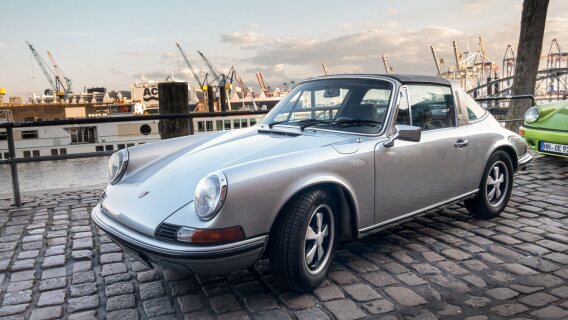Thanks to China, German auto stocks have been on a tear lately. But an American company could be the biggest long-term beneficiary from China’s taste for luxury cars.
When the Trump Administration leaned on Germany to boycott China’s Huawei telecom equipment, it got the cold shoulder.
The reason? Germany does a lot of business with China and nowhere is this clearer than in the auto sector, which depends on scale to reap profits.
In the midst of the Covid-19 economic slowdown, Germany’s car manufacturers are once again being bailed out by China. Having come to a screeching stop in February, China’s auto sales are coming alive, with the luxury segment up 13.6% in April and looking even better for May according to the investment firm Bernstein.
[text_ad]
German Auto Stocks Benefitting
German automakers dominate auto’s premium segment. Volkswagen (VWAGY), the world’s largest automaker, owns Porsche (POAHY) and Audi (NSU.DE). Then there are Mercedes Benz and BMW (BMWYY).
These brands are even stronger in China than the rest of the world, which is saying something. And that’s a big reason why shares of those four German auto stocks are up an average of 51% from their March lows.
Jürgen Pieper, an analyst at private German bank Metzler, estimates their combined share of the China’s luxury-car market is more than 90%, versus roughly 85% globally.
You might think that the first part of the auto market to come back would be the low end, but in status-driven Asia, the premium markets bounce back first. In fact, while China’s overall auto sales have been shrinking since early 2019, its premium brands have stayed strong because they are almost always paid for with cold cash and rarely financed.
These German luxury brands benefit from a reputation for quality, reliability and prestige – three traits highly prized by the Chinese and across Asia.
The upside in China for these premium automakers is still substantial.
According to research by Goldman Sachs, while premium brands account for 52% of the market in Hong Kong and around 25% in China’s coastal cities such as Shanghai, they are at 15% for the country as a whole.
It’s why China will likely continue to contribute 35% to 50% of these automaker’s profits, according to Frankfurt-based investment firm Union Investment. This is despite the fact more and more of their sales in China come from joint ventures with Chinese partners. BMW intends to raise its equity stake in its joint venture to 75%, and the rest will likely follow.
The Electric Vehicle (EV) Angle Gives Tesla an Opening
The real payoff in China’s auto market will be in electric vehicles, and the speed and scale of this burgeoning market will be tied to EV battery development.
China’s Contemporary Amperex Technology (known as CATL), which makes electric-car batteries for Tesla (TSLA) and Volkswagen, has developed a power pack that lasts more than 15 years and a million miles – an industry milestone. General Motors (GM) has publicly stated that it is near this goal.
CATL Chairman Zeng Yuqun said in an interview at company headquarters that he expects a “trigger point” for electric cars will occur once they overtake gasoline-powered vehicles around 2030-2035.
Concerns about batteries losing strength and having to be replaced after a few years is one factor holding back consumer adoption of EVs.
Battery-powered cars are expected to account for just 8% of all sales next year in China.
Interestingly, CATL struck a two-year contract this February to supply batteries to Tesla, with CATL batteries set to go into Model 3 sedans produced at Tesla’s huge new factory near Shanghai, which started deliveries around the beginning of this year.
CATL, which is adding a production facility in Germany, is set to make more than 70% of batteries required by BMW and also works with Volkswagen’s Audi unit and is cooperating with Porsche.
All this may explain why Tesla stock has almost tripled off its March lows, zooming past 1,000 a share.
Are the Germans worried? Even if they are, investors in German auto stocks clearly aren’t.
[author_ad]

